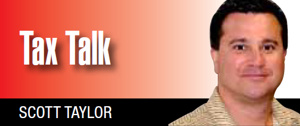Most people in Canada between the ages of 18 and 70 who earn more than $3,500 a year contribute to the Canada Pension Plan (CPP) – except in Quebec, where the Quebec Pension Plan provides benefits. Like an insurance plan, CPP is designed to provide a monthly retirement or disability benefit or, if you die, a survivor benefit to your spouse and children.
Unlike insurance, CPP isn’t optional. It is, in effect, a forced savings plan. I have clients who diligently set aside a portion of their wages for a rainy day or retirement, and to them CPP is a four-letter word.
But most Canadians are counting on CPP to pay the bills once they stop working. A CIBC survey earlier this year said 19% of Canadians have saved less than $50,000 for retirement, and 30% have no retirement savings at all.
If CPP is part of your retirement plan, you’ll want to learn as much as you can about how the program works and what you can expect as a pension.
Do the math
How much you receive from CPP is based on your earnings, how many contributions you’ve made, and your age when you stop working.
|
How much you receive from CPP is based on your earnings, how many contributions you’ve made, and your age when you stop working.
|
The normal age for receiving a CPP retirement pension is 65. If you start your CPP retirement pension then, you’ll get the full pension amount you’re eligible to receive. For 2018, the maximum is $1,134.17 per month.
You can, however, start drawing a retirement pension as early as age 60 (at a reduced rate) or wait until as late as 70 (and get a premium).
Taking your pension early will cost you 0.6% per month. If you start receiving your CPP pension at the age of 60, your total amount will be 36% less than it would have been if you had taken it at 65.
Conversely, after age 65 your monthly CPP retirement pension amount will increase by 0.7% per month. If you start receiving your pension at the age of 70, your amount will be 42% more than it would have been if you had taken it at 65.
Taking CPP while you work
The age when you decide to start taking your CPP retirement pension depends on your savings, debt, job satisfaction, health, family, the lifestyle you lead, and other factors.
If you’re between 65 and 70 and work while drawing your CPP retirement pension, you can choose to make CPP contributions if you want to. If you decide to do so, your employer will also have to as well.
If you decide to receive your pension before age 65 without any work interruption, you and your employer are required to make CPP contributions.
CPP for owner-operators
For sole proprietor owner-operators, the amount you pay into CPP is based on your net income after expenses. So low income equals low CPP contribution. You can’t choose to pay more into it; the contribution amount is a set percentage of your income.
I’m constantly reminding our incorporated owner-operator clients that CPP is only payable as part of any wages they are paid by their company. CPP is not payable on dividends. Although dividends can produce an overall smaller total tax bill, that’s mostly because there is no CPP being paid.
Look online
The simplest way to learn more about your eligibility and benefits is to visit www.servicecanada.gc.ca and review your CPP statement. It will show the total amount of your CPP contributions by year and your pensionable earnings on which they are based. It will also estimate what your pension or benefit would be if you were eligible to receive it now.
Ask your accountant or financial advisor for help, especially if you’re counting on tapping into your government pension before you turn 65.
A wise client once told me, “I have no money but I always pay my bills.” So, treat your retirement savings like a bill. Make it a routine to regularly stuff your mattress, RRSP, TFSA, or some other place to park your money until your working days are over.CPP may force you to save, but you’ll probably need more than a government pension to fund your retirement.
Scott Taylor is vice-president of TFS Group, providing accounting, bookkeeping, tax return preparation, and other business services for owner/operators.
Learn more at www.tfsgroup.com or call 800-461-5970.
